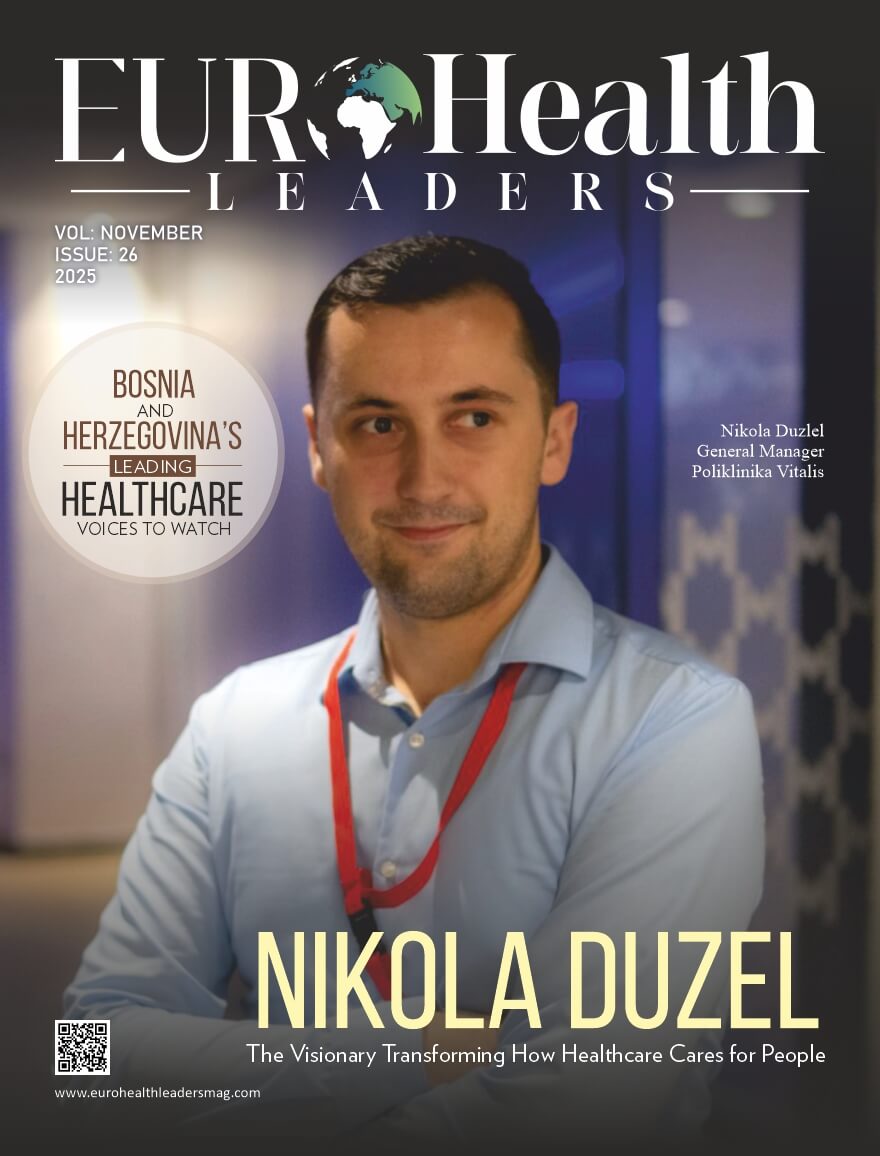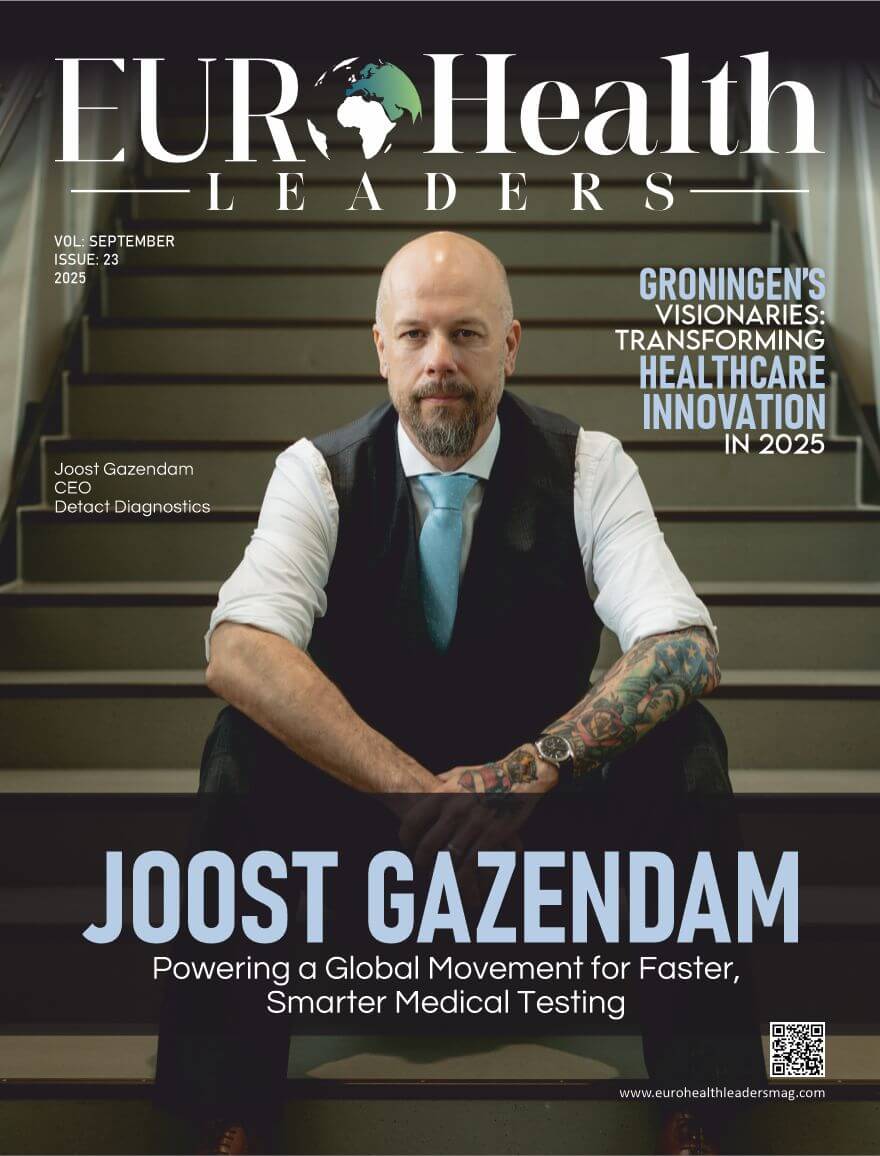When people think of addiction, food is rarely the first thing that comes to mind. Yet for those who experience it, food addiction is just as complex and difficult as any other substance abuse disorder. Esther Helga Gudmundsdottir MSc. saw this need firsthand and took a personal journey that ultimately led to the creation of innovative solutions. Through her establishment of MFM Center and INFACT School, as a Founder and Director, she has made it her mission to give food addiction the attention it deserves—offering hope, education, and treatment to those suffering.
The foundation of Esther’s knowledge about food obsession comes directly from her personal battles with eating problems. During her childhood years in Iceland, she maintained what seemed like a regular active and healthy lifestyle. Throughout the teenage years’ food gained control of her life in a similar pattern to what many other individuals experience. “I was very active as a child and never had problems with weight until I convinced myself that I was too fat in my teenage years,” she shared. This critical turning point became the foundation for her life-long problems with body image and dieting that led to eating disorders and addiction to certain foods. It was a struggle that would shape her entire adult life. Despite her best efforts, none of the traditional diets or wellness trends could help her break free from what was now a destructive cycle of dieting, fasting, and binging. It wasn’t until she was introduced to a 12-step program at the age of 48 that she found the key to her recovery—abstinence from certain foods, along with the therapeutic treatment that helped her finally regain control.
For Esther, her personal battle wasn’t just a matter of weight loss—it was about reclaiming her life from an addiction that had spiraled out of control. “I probably lost at least 500 kg of extra weight in these years, probably more,” she recalled. But this weight loss, though significant, was not the end of the story. It wasn’t until she found a community and a structured program for food addiction that she could truly begin to heal. The shift in her mindset came with the realization that eating- and food-addiction is not about willpower—it is about abstaining from all trigger foods (that is foods that cause craving), dealing with the underlying psychological and emotional issues that drive the compulsion to eat in harmful ways, and introducing a program that brings on 9p8psychic change. “The craving was gone and has not returned now for 22 years,” Esther Helga Gudmundsdottir said of her experience following the abstinent food plan and a program healing her.
Let’s explore Esther’s inspiring story of overcoming food addiction and shaping global recovery solutions!
A Personal Struggle with Food Addiction
Her own success ignited a passion in Esther Helga Gudmundsdottir to help others who were fighting similar battles. “I began to look for education and treatment for food addiction and found very little,” she explained. At the time, food-addiction was not widely recognized as a disorder by major medical organizations, and finding the right treatment methods was a daunting task. Undeterred, she began to educate herself, first as an addiction counselor and supervisor, and later by joining an experimental training program with ACORN Food Dependency and Recovery Center in the USA, now known as SHIFT. It was here that she learned a treatment approach based on methods used for other addictions but tailored to those suffering from addictive eating behavior and addiction to certain foods.
A Pioneering Approach to Food Addiction Treatment
In 2006, Esther Helga Gudmundsdottir founded the MFM Center in Iceland, one of the world’s first outpatient centers dedicated to food addiction treatment. The center was built on the principles she had learned through her own recovery, as well as the expertise she gained through formal education. MFM offers a multi-pronged approach to treatment, with a focus on three key principles: abstinence from trigger foods, intense support from peers and counselors, and a structured action plan to reverse the personality changes that often occur in those suffering from addiction. “The success of the MFM treatment method is based on these three major principles,” Esther said, citing their importance in breaking the cycle of overeating disorder.
The Success of MFM’s Treatment Model
The treatment method at MFM has proven effective for many clients, with some of the highest long-term success rates reported for food addiction recovery. “Absolute abstinence from trigger foods, extreme support with counselors or peer support people that understand recovery methods for food addiction, and a plan of action that addresses personality changes,” Esther Helga Gudmundsdottir explained. These are the pillars that have helped countless individuals recover from food addiction, restoring their physical and mental health. The combination of abstinence from trigger foods, therapeutic practices such as the 12-step approach, and the mental work required to address the root causes of the addiction sets MFM apart from other treatment programs.
Creating INFACT School
Recognizing the need for professional education in food addiction, Esther Helga Gudmundsdottir founded INFACT School (International Food Addiction Counseling & Training School) in 2017. The school offers certification for food addiction professionals, a vital step in raising awareness and improving treatment for this often-overlooked condition. “We have at this time certified 130 students as Certified Food Addiction Professionals from 19 different countries,” she shared, proudly noting that the school’s graduates are now equipped to bring food addiction counseling into their respective practices, from clinical settings to private counseling.
INFACT School was born out of Esther’s recognition that the majority of professionals working in the fields of eating and weight management often come from backgrounds in health or diet sectors. These professionals, while knowledgeable, often lack the specialized training needed to treat food addiction effectively. Esther Helga Gudmundsdottir and her colleagues at INFACT set out to fill this gap, offering a curriculum that combines addiction recovery practices with a specific focus on food addiction. The training draws heavily from the standards of the American Society of Addiction Medicine (ASAM), alongside a practical course in treatment and recovery methods that equips counselors to work directly with food addicts.
Food Addiction: A Brain Disease
The concept of addictive eating behavior as a brain disease has been central to her work. “Food addiction is a brain disease,” she asserted, echoing the stance of leading addiction experts. “Addiction is a treatable, chronic medical disease involving complex interactions among brain circuits, genetics, the environment, and an individual’s life experiences.” This comprehensive understanding of addiction—applicable not just to alcohol or drugs but to food—has allowed Esther Helga Gudmundsdottir and her colleagues to develop more effective treatment methodologies for those who struggle with compulsive eating. While the World Health Organization (WHO) and the American Psychiatric Association (APA) have yet to formally recognize food addiction in the same way they acknowledge substance use disorders, Esther remains hopeful that change is on the horizon. She believes that continued research and advocacy efforts will eventually lead to greater acceptance of overeating disorder as a serious medical condition.
Shaping the Global Landscape of Food Addiction Treatment
The global landscape of food addiction treatment is steadily evolving, and Esther Helga Gudmundsdottir has played an instrumental role in advocating for wider recognition and understanding of the condition. “Once we have this disease acknowledged, there will be a need for the experience and knowledge of those that have worked in the field in the past 40 years,” she said. Her involvement with the Food Addiction Institute and her ongoing support for research are just two of the ways she is working to advance this important cause on the global stage.
Overcoming Obstacles in Food Addiction Awareness and Treatment
Still, the path to widespread acceptance of food addiction treatment is not without obstacles. In both Iceland and internationally, one of the major challenges has been convincing professionals to recognize overeating and food-addiction as a legitimate disorder. “The main obstacles have been professionals with a belief system against the possibility of food/sugar or ultra-processed foods being substance use disorders,” she explained. This skepticism stems, in part, from the prevailing societal view that addiction is only associated with substances like drugs and alcohol. Changing this perception is key to making progress, and Esther is committed to challenging these outdated ideas with research, education, and lived experiences.
Collaborating with Healthcare Professionals for Holistic Treatment
Despite these challenges, Esther Helga Gudmundsdottir continues to collaborate with healthcare professionals to integrate the treatment into mainstream medical practice. Through INFACT School, healthcare professionals from diverse fields—such as nutrition, psychology, and addiction counseling—have gained the knowledge and tools to screen for food addiction, assess patients, and guide them toward recovery. “Some have launched a program that is directed at this problem, others have begun screening and assessment for food addiction,” she noted, highlighting the positive impact that collaboration is having on the treatment.
The Future of MFM Center and INFACT School
Looking ahead, Esther Helga Gudmundsdottir is optimistic about the future of both MFM Center and INFACT School. “It is my hope that the MFM Center in Iceland will continue to be the place where suffering food addicts will be screened and assessed and then will have guidance and sufficient treatment for the disease,” she said. Her vision for INFACT School is equally ambitious—she believes the school is pioneering essential knowledge and understanding of dietary addiction as a substance use disorder and training the next generation of professionals who will continue to make strides in this field.
Advice for Aspiring Professionals in Food Addiction Counseling
For aspiring professionals looking to specialize in dietary addiction counseling and treatment, Esther Helga Gudmundsdottir has this advice: “To educate themselves in the field of addiction counseling and treatment methods that research has shown work for recovery for the suffering food addict. To set aside what you may think works and be open to the wealth of understanding and knowledge in the field of addiction to food from professionals with the experience and knowledge.” Her call to action is clear—there is still much work to be done, but with the right education, empathy, and support, this disorder can be treated, and lives can be transformed.
In her quest to bring food addiction out of the shadows and into the realm of mainstream medical treatment, Esther Helga Gudmundsdottir is making a difference that will be felt for generations to come.










